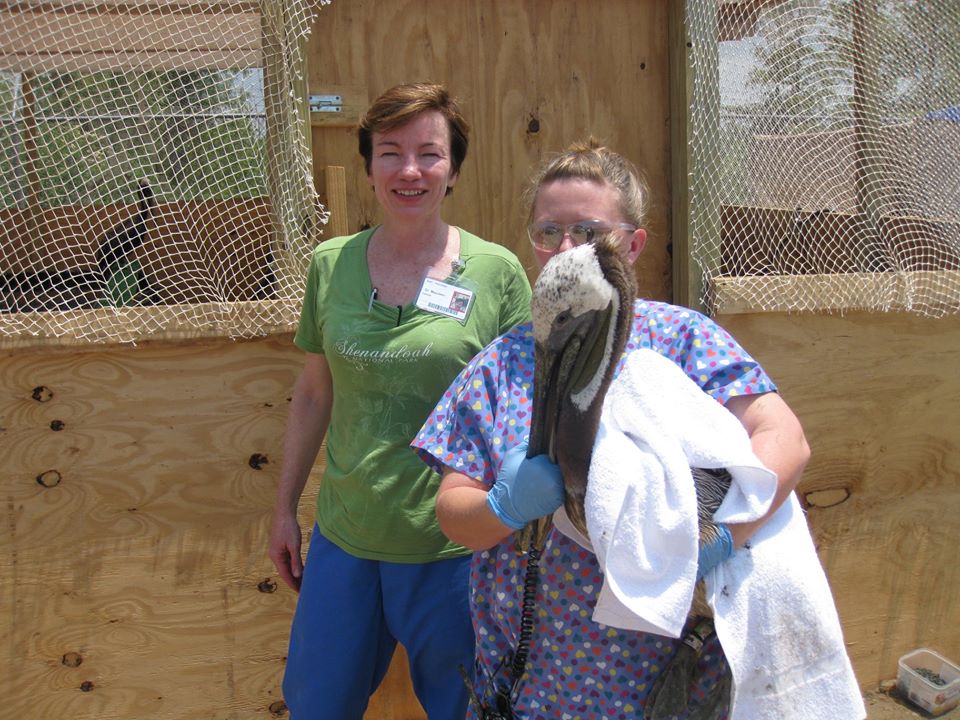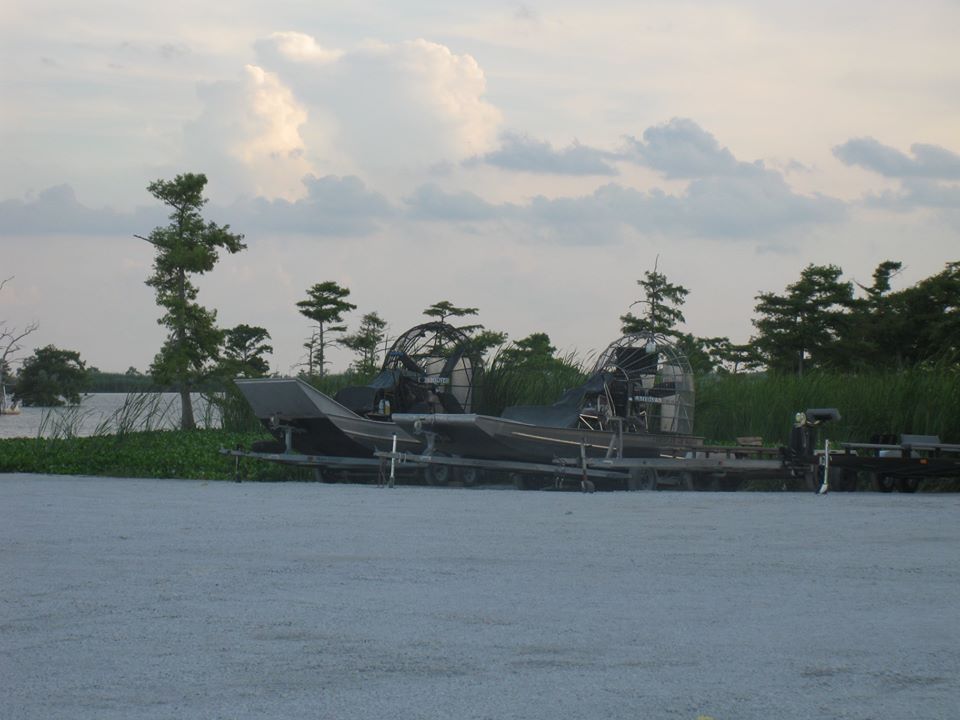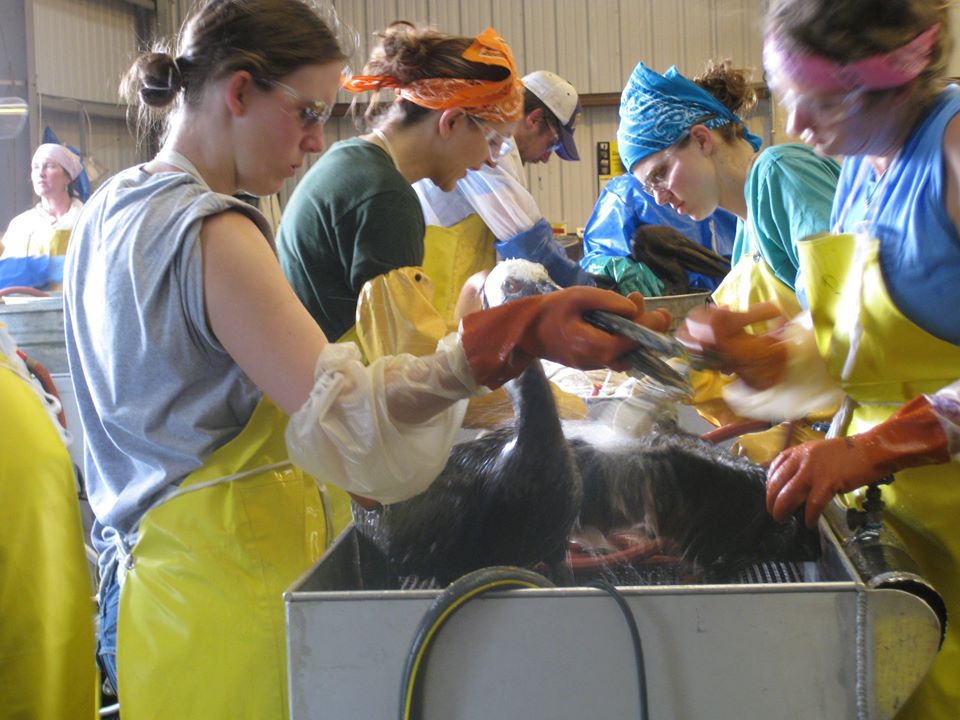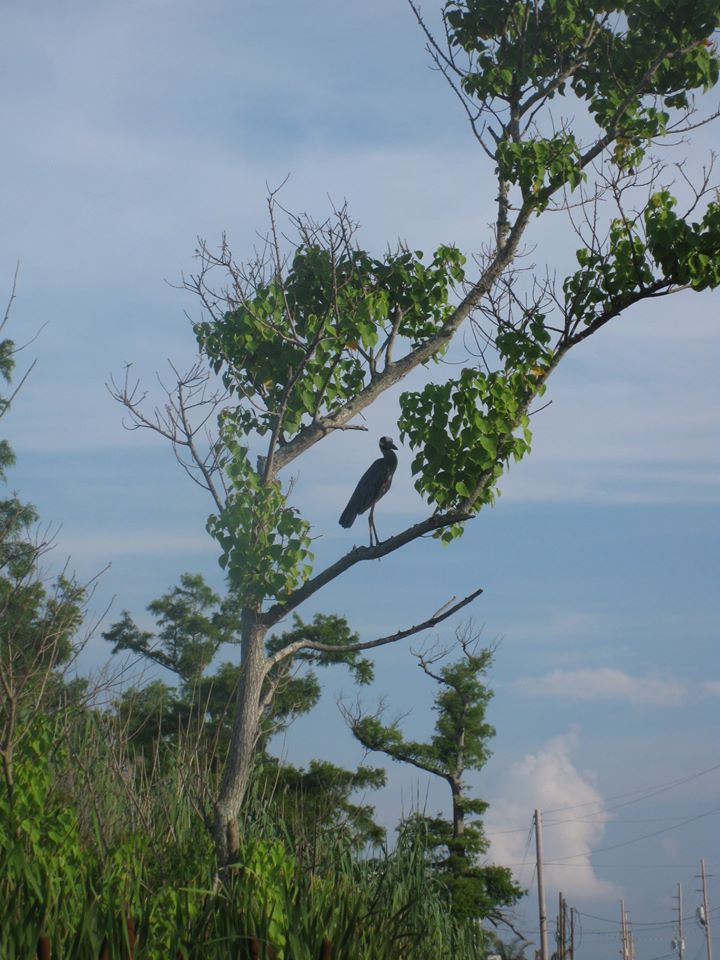Earth Day 2020: Letter from HFW Founder and President Dr. Maureen Hackett, "10 things I would do to stop the oil spill in the Gulf of Mexico off the Louisiana Shore" from May, 2010

Introduction: This essay was written in the summer after the Deepwater Horizon exploded and the gulf oil spill began on April 20, 2010. During this event many people thought they understood that the oil brokerage company BP was “doing all they could” to stop the oil spill. But as this disaster unfolded, it was clear to some that BP either did not want to “close the hole” or they could not.
Either way, the American people were stuck to watch helplessly while BP ran the show. I saw this firsthand. This essay is a defense of a role for a neutral federal government to take over in these disasters involving private and powerful large corporations despoiling the public’s natural resources. While I understand neutrality is something we strive for, and that we may never attain. Most see a win-win by stopping the oil quickly. But for BP there is a win in keeping their gusher going. While this may sound strange it explains a lot of the delay and ineptness. They had found a gusher. This gusher was in an environmentally sensitive area. Did anyone ever wonder what environmental reviews occurred before they received the go ahead to drill in one of the last two Blue Fin Tuna breeding sites in the world? It was clear to me while listening to the president of BP, Tony S. say at the end of a 60 Minutes interview in late May 2010; “OK We’ll close the hole, but we reserve the right to drill in that reservoir again.” What BP really wanted was to keep their gusher and likely not have to get permission again to drill in this “environmentally sensitive area.” The use of dispersants was a way to hide the oil while they drilled a relief well, so they could keep drilling “the gusher”. The Americans were left to deal with the mess—there was a lot more oil and thus more profits. On this earth day 22 April 2020, I read that there is even more oil being drilled in deep waters and regulatory restrictions on safety standards are “undergoing updating” and environmental regulations are loosening. We can demand more of our politicians to do their job of protecting our earth and with it our health.
Deep Water Horizon’s Disaster Requires a federal response By Maureen Hackett, July 2010
On April 20, 2010 the Deep Water Horizon exploratory oil rig for British Petroleum exploded in the Gulf of Mexico and killed 11 workers and began spewing untold millions of gallons of crude oil into the Gulf at a depth of 5000 ft of water and 50 miles from the coast of Louisiana. The media coverage was quite sparse initially. During the week of April 26- May 2, 2010 I was in the Caribbean and watched the news on television; BBC World News which showed aerial photos of the exploded and burning rig and later planes spreading "dispersants" over the water. The news stated that BP's plans were to drill a relief well which would take a minimum of 90 days and in the interim to spread dispersants to "break up the oil". This was the message the entire week. No plans to attempt to kill the well and no questions about the massive dumping of dispersants.
First, I would find out what I could about previous large spills and the common methods employed to stop them. I would want to know more about the use of dispersants and frankly I would go at this with the conclusion that it was better to mechanically pick up the oil.
 Simultaneous with this research I would demand a release of the entire contents of the dispersants and stop their use until I knew what the dangers were. I would demand OSHA standards for any activity including dispersants and clean-up.
Simultaneous with this research I would demand a release of the entire contents of the dispersants and stop their use until I knew what the dangers were. I would demand OSHA standards for any activity including dispersants and clean-up.
In the meantime, I would set up a command center with a military command structure of an independent branch not affiliated with working with the oil industry (not Thad Allen of the Coast Guard). I would call in the Navy with at least one submarine and a command ship.
The command center would get a read on the amounts of oil gushing.
The command center would begin planning the mechanical protection of the shore and wetlands before the oil reached it. I would direct the military to go to each area of land likely to be affected and have them work with locals who know the wetlands and take their suggestions for protecting the ecosystem and wildlife. The use of sand berms and other shore protecting measures would be implemented.
 I would allow wildlife experts to come in and suggest how to best find and rescue the wildlife as quickly as possible which would likely mean boat patrols so that we could get them out of the oil. There will be a lot of oil because I would not be using the dispersants.
I would allow wildlife experts to come in and suggest how to best find and rescue the wildlife as quickly as possible which would likely mean boat patrols so that we could get them out of the oil. There will be a lot of oil because I would not be using the dispersants.
The command center would gather information about the mechanical removal of oil from the surface by other oil spills such as that in the United Arab Emerites where large supertankers were brought in to gather the oil. There are machines and products that can separate out the oil from the water. Everything I have heard indicates to me that the mechanical removal of oil is preferable for people and wildlife and the actual water itself.
The command center would begin making several plans to cap or kill the well while simultaneously starting to drill the relief well. I would bring in teams of engineers to work under the direction of the command center. I would have at least 4 teams to each make a device/plan to stop the well so that as one team's plan did not work another one could be implemented. BP's equipment and workers would be put under the command center. If the BP personnel could not be cooperative and work to get this done then I would remove them and have personnel from other oil companies come in and work under the command. These other oil companies can benefit from the public image of helping out the country. Other personnel would include Navy technicians/engineers, University professors, private industry experts and local people who likely have worked in multiple oil rig jobs for multiple companies.
 In the meantime, I would stop all new offshore drilling leases and stop any sites that have been approved but not started to be drilled: especially the Arctic sites!
In the meantime, I would stop all new offshore drilling leases and stop any sites that have been approved but not started to be drilled: especially the Arctic sites!
I would have a briefing every day with the media and allow cameras everywhere.
I would demand that OSHA regulations for protective equipment and clothing be used by all personnel where indicated including and especially respirators.
I would begin a massive inspection of oil drilling sites starting with the deep-water wells in particular the Atlantis in the Gulf of Mexico which has been cited as having many problems.
I would constantly call on Americans to use this opportunity to revamp our entire energy agenda and wean ourselves off of fossil fuels as quickly as possible, starting with conserving oil through much, much higher mileage standards on cars and I would call on all Americans to cut back on their use of fossil fuels including non-necessary activities like lawn mowing and other small engine use for non essential activities. Convert these to electricity as much as possible and conserve as much as possible. Move to as much renewable energy as possible. Begin massive research and development of renewable energy including methanol from algae, etc.
